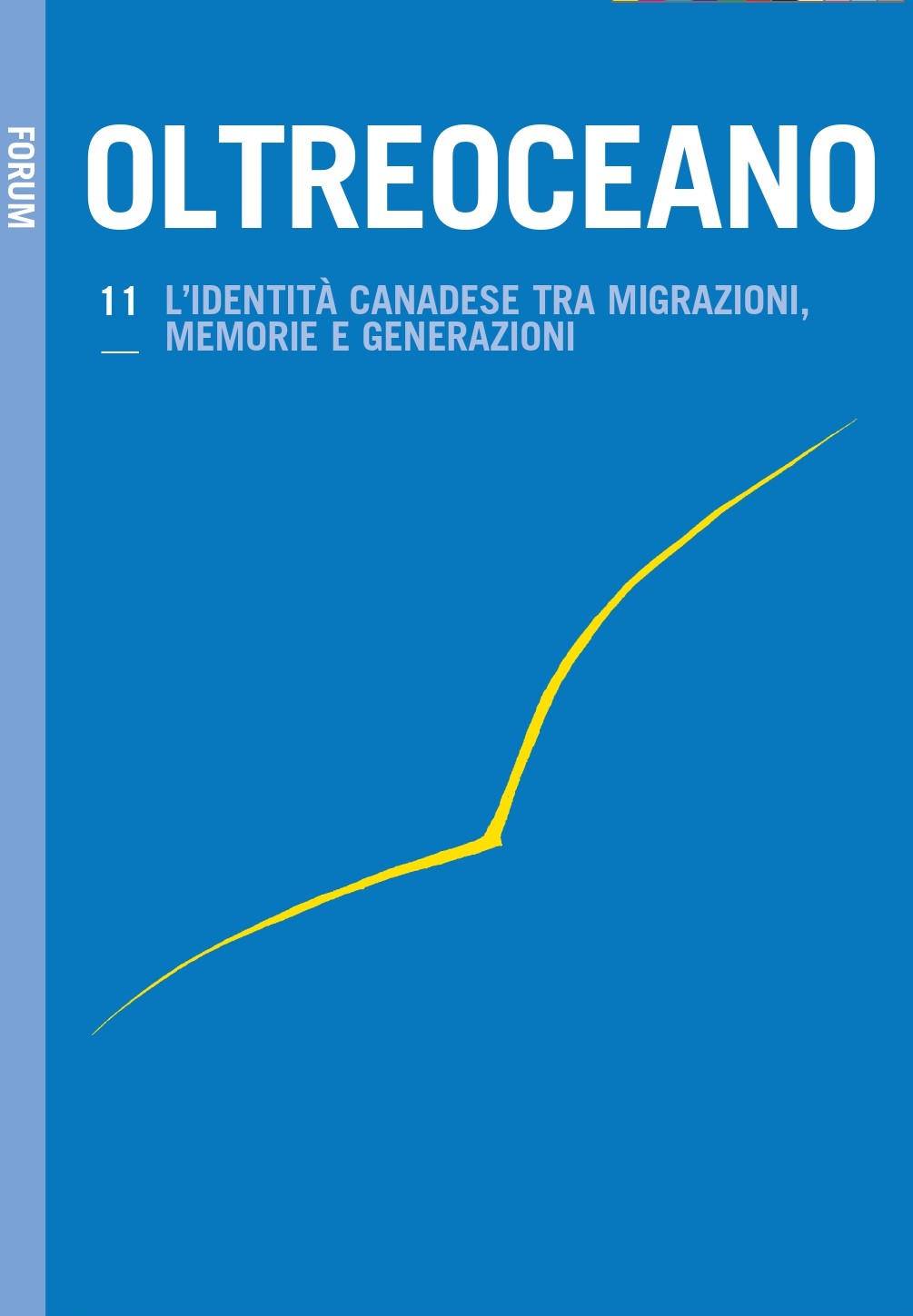La trayectoria identidaria de Carmen Aguirre: Testimonio de una (latino)canadiense revolucionaria
Keywords:
Carmen Aguirre, literatura latino-canadiense, testimonio, narrativaAbstract
El testimonio Something Fierce: Memories of a Revolutionary Daughter (2011) de Carmen Aguirre analiza la cuestión de la identidad de la narrautora frente al exilio después del golpe de estado de Pinochet y a la clandestinidad impuesta por la madre revolucionaria, la
autora Carmen Rodríguez. El cuestionamiento identitario (Chile, Canadá, la clandestinidad, y de clase social), el diálogo con la voz materna (literaria, política y generacional), y los intersticios de la obra dentro de la literatura y la sociedad canadiense estructuran el relato. El rico tejido de estas particularidades significa un nueva trayectoria para la literatura (latino) canadiense.
Carmen Aguirre’s Identities: Testimonial of a (Latino)Canadian Revolutionary
The book Something Fierce: Memories of a Revolutionary Daughter (2011) by Carmen Aguirre analyses the question of the narrator/author faced with exile resulting from Pinochet’s coup d’état and the clandestine existence imposed by her revolutionary mother, author Carmen Rodríguez. The account is structured by a discussion of identity (Chilean, Canadian, clandestine and tied to social class), a dialogue with the (literary, political and generational) maternal voice, and the interstices of the work in Canadian literature and society. The rich interweaving of these characteristics in Aguirre’s memoirs suggests a new path for (Latino)Canadian literature.
La traiettoria identitaria di Carmen Aguirre: testimonianza di una (latino)canadese rivoluzionaria
La testimonianza Something Fierce: Memories of a Revolutionary Daughter, della cileno-canadese Carmen Aguirre, analizza la problematica dell’identità della ‘narrautrice’ di fronte all’esilio successivo al colpo di stato di Pinochet e nei confronti della clandestinità imposta dalla madre rivoluzionaria (1979-1984), l’autrice Carmen Rodríguez. Il racconto è strutturato sulla questione identitaria (Cile, Canadá, clandestinità, classe sociale), sul dialogo (letterario, politico e generazionale) con la voce materna, sugli interstizi dell’opera all’interno della letteratura e della società canadese. Il ricco tessuto di tali particolarità segna una nuova traiettoria per la letteratura (latino)canadese.
Downloads
References
Aguirre, C. (2011): Something Fierce: Memories of a Revolutionary Daughter. Vancouver: Douglas & McIntyre.
Atwood, M. (1972): Survival: A Thematic Guide to Canadian Literature. Toronto: Anansi.
Barber, J. (2012/10/23): Say goodbye to Douglas & MacIntyre and a 40-year publishing dream. The Globeand Mail. Recuperado de http://www.theglobeandmail.com/arts/books-and-media/say-goodbye-to-douglas-macintyre-and-a-40-year-publishing-dream/article4632781/
Da, Wei Wei (2002): Chileans in Canada: Contexts of Departure and Arrival. Latin American Research Group. Recuperado de http://www.yorku.ca/cohesion/LARG/PDF/Chile-WWD-2002.pdf
Etcheverry, G. (2013): Carmen Aguirre: The Refugee Hotel. En N: Alvarez (Ed.), Fronteras vivientes: Eight Latina / o Canadian Plays (pp. 274-278). Toronto: Playwrights Canada.
Etcheverry, G. (2015): Cultures of Coloniality: Latina/o Writing in Canada. Thesis. Doctor of Philosophy in Canadian Studies. Ottawa, ON, Canadá: Carleton University.
Grams, Z. (2014/06/02): A Gran Malon Party for Author Carmen Aguirre. Blog Post, ZG Communications. Recuperado de http://www.zgcommunications.com/a-gran-malon-party-for-authorcarmen-aguirre/
Hazelton, H. (2007): Latinocanadá: A Critical Study of Ten Latin American Writers of Canada. Montréal: McGill-Queen’s University.
Osorio, M. (2014): Trauma and Memory: Something Fierce by Carmen Aguirre. Probing the Boundaries. Recuperado de https://www.inter-disciplinary.net/probing-the-boundaries/wp-content/uploads/2014/05/mosoriotestipaper.pdf
Paikin, S. (2012/08/09): Carmen Aguirre: The Story of a Revolutionary Daughter. Entrevista. The Agenda with Steve Paikin. TVO.Video. 25 min 14.
Peri Rossi, C. (2003): Estado de exilio. Madrid: Visor Libros.
Rodríguez, C. (1995): I live in a language that’s not mine. En M. Silvera (Ed.), The OtherWoman: Women of Colour in Contemporary Canadian Literature (pp. 208-218). Toronto: Sister Vision.
Rodríguez, C. (2011): Retribution. Toronto: Women’s Press Literary.
Said, E. (2000): Reflections on Exile and Other Essays. Cambridge, MA: Harvard University.
Shayne, J. (2009): They Used to Call Us Witches: Chilean Exiles, Culture and Feminism. Lanham, MA: Lexington Books.
Torres-Recinos, J. (2013): Chile 1973: Memoria, trauma y búsqueda en la narrativa chilena canadiense actual. Interfaces Brasil / Canadá. Canoas, 13, 2, pp. 97-116.
Verdecchia, G. (2013): Hasta La Victoria Siempre! The Persistant Memory of Revolutionary Politics in the Plays of Carmen Aguirre. En N. Alvarez (Ed.), Latina / o Canadian Theatre and Performance. New Essays on Canadian Theatre, I-III (pp. 179-199). Toronto: Playwrights Canada.
Downloads
Published
How to Cite
Issue
Section
License

This work is licensed under a Creative Commons Attribution-NonCommercial-ShareAlike 4.0 International License.
The authors undertake to comply with the following conditions, which are considered accepted at the time of submission of their contributions.
The sending of a text implies that it is unpublished and not submitted to be published elsewhere.
1. If accepted, the author shall confer on the publisher the right to publish and distribute it both in paper form and in the online electronic edition. The published articles will be downloadable and made available in open access.
2. Provided that it correctly indicates that the first publication took place in the journal Oltreoceano. Rivista sulle migrazioni the author has the right to: a) reproduce the article in separate extracts or collected in a volume; b) publish the article on their personal website or teaching site provided that these sites are of a non-commercial nature; c) deposit the article in online archives of a non-commercial nature, linked to the institution they belong to or as part of projects for the non-commercial dissemination and open access of scientific works.
The use of contributions by third parties, for commercial or otherwise unauthorized purposes, is not allowed. The publisher declines all responsibility for the unauthorized use of the material published in the journal.












